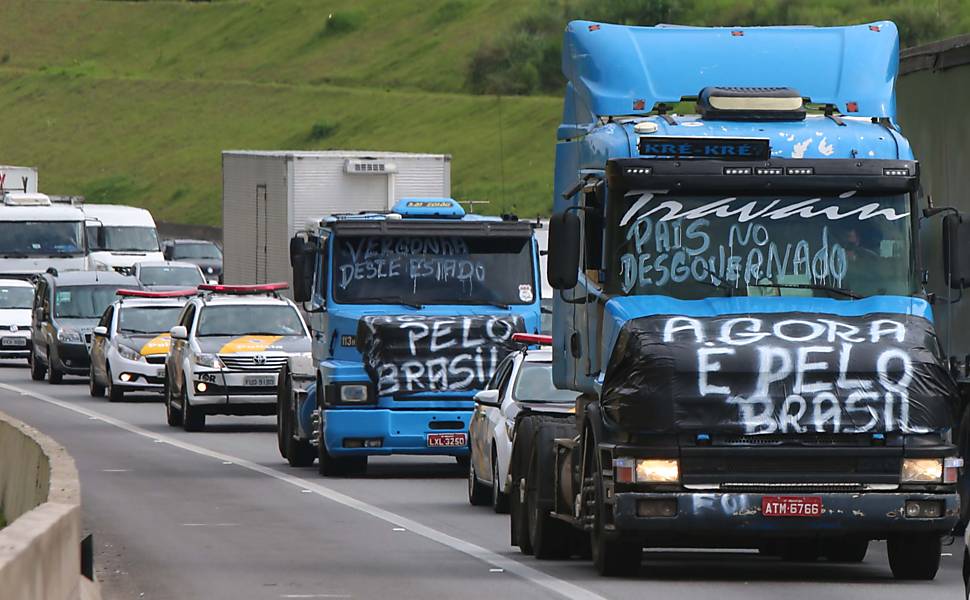Last Monday (9), truckers blocked highways in at least 14 States on the first day of the strike.
Although the figures have not been qualified as “worrying” by the government, the instruction is to not underestimate the action.
Officially, Minister of Justice José Eduardo Cardozo and Social Communications Minister Edinho Silva, members of the crisis cabinet created to monitor the strike, clashed with protesters.
They believe the strike has “political bias” and “no official claim” as it is led by independent groups, without ties to the unions.

The demonstrators demand a reduction in the price of diesel, the creation of a minimum payment for freight, a unified salary across the country and US$ 13,160 (R$ 50,000) in subsidized credit for independent truckers. The group also wants help to refinance purchased vehicles.
The presidency argues that it agreed with most of the truckers’ claims presented in April’s strike.
Ivar Schmidt, one of the members of the National Transport Command (CNT) – the group that leads protests across the country – said the first day was better than expected.
He reckons the strike will gain support from other truckers this Tuesday (10), but it will only continue if there is public support for the main agenda, meaning the president’s removal from office. The strike is backed by the main groups calling for Rousseff’s impeachment.
According to Cardozo, the government will apply a US$ 504 (R$ 1,915) fine to truckers who are blocking the roads, as set forth by law.